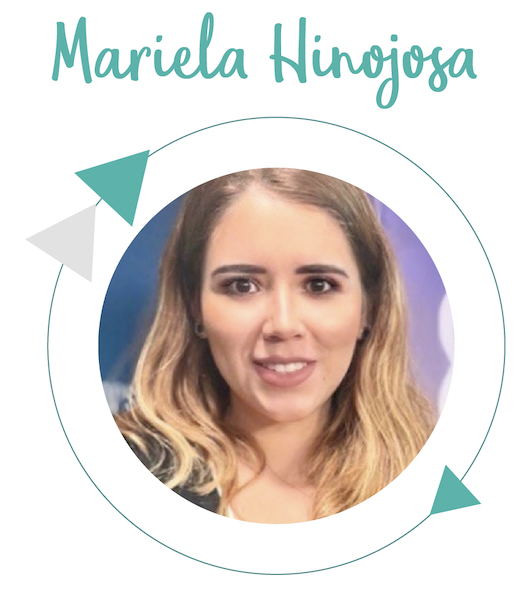
Sustainable development of economies has led to an effort for promoting that gender equality may set the path towards sustainable economic growth.
For a bit of context, when we refer to “sustainable development” we refer to the balanced economic growth, environmental care, and social well-being (the above may also be identified as “ESG”). On the other hand, “gender equality” as a human right —depending on each Constitution—has been globally listed in sustainable economic development agendas, but shall also be genuinely defended and emphasized.
Environmental.
Climate change and environmental issues widely affect the world but primarily, the most vulnerable sectors. In certain regions, climate change does have a higher impact on women, since many of them depend on natural resources to guarantee food, drinking water, and fuel for the well-being of their families. In undeveloped economies, when climate change events strike, women and girls are forced to work longer hours to survive such challenges, to drop out of school, and to deal directly with risks related to child and maternal health.
Big data analysis shows that, when various crises overlap (e.g. two or more environment-related crises, or an environment-related crisis and a pandemic, conflict, etc.), women and girls are more likely to use Google and other search engines to seek violence-related help. Although this doesn’t necessarily equate to proportional increases in the incidence of violence against women, it signals that the problem may worsen during those times. In Mexico, during the COVID-19 pandemic domestic violence did increase in parallel with lack of justice due to suspension of Governmental activities, including courts of justice.
When disasters occur, women are less likely to survive and are often the most adversely affected due to long-standing gender inequalities that have created disparities in information, movement, decision-making, and access to resources and training. As a result, women and girls have greater difficulty in receiving relief and assistance, further threatening their livelihoods, well-being and recovery, as well as creating a vicious cycle of vulnerability to future disasters. Unfortunately, women in Ukraine are an example of how women —of all ages— are dramatically affected, with unconscionable events like rape occurring during Russia’s war on Ukraine.
Social.
Most of the issues originated from the construction of society —related to gender inequalities— that affect the economic growth are, generally speaking, globally shared. In Mexico, even child marriage and trafficking of indigenous women and girls are forbidden, both still commonly occur. According to the United Nations Sustainable Development Summit 2023, there are 750 million women and girls worldwide who were married before the age of 18, there are still 18 countries where husbands can legally prohibit working as a woman, the representation of women in national parliaments is only 23.7%, and the wage gap between men and women for the same job, women are paid up to 35% less than men.
The Mexican Central Bank has recognized gender equality as a goal for economic development, given that research shows that the empowerment of women in the economic sector would produce significant impact and maximize growth. Some of these significant benefits would be a 20% growth in GDP per capita if women were afforded more employment opportunities or if women had the opportunity to create their own businesses, which would have an incentive effect on stimulating economic growth; and combating hunger, given that boosting women’s participation in the agricultural sector allows for greater food production, as well as improving the agricultural practices used. Currently, the latest data from 2018 show that women’s economic representation is 38% of the GDP.
Governance.
Although over the years some progress has been made in an attempt to reach gender equality, as a result of which laws have been modified in many countries to recognize equal rights between women and men, the reality is that there are still many deficiencies in the global regulatory framework, in social norms, public policies, education and in the social and economic sector itself.
From the private sector, through corporate policies companies shall conduct a serious and genuine attempt for raising awareness of women’s participation in business and boosting their participation, much more than merely for reputational concern.
It is imperative to pursue the idea that the inclusion of gender in public policies and the economic sector through the “socially responsible” speech is a nice to have or a reputational matter. It is a fundamental right at the international level and implies multiple socio-economic benefits. It is likely that the benefits of encouraging women’s participation in business and economy, may not occur as expected, until the reasons are fully understood.
Our love and respect to women in Ukraine and across the world who face extraordinary challenges but continue to persevere through difficult times.
REFERENCIAS:
- Agenda 2030 para el Desarrollo Sostenible, Objetivo 5: Lograr la igualdad entre los géneros y empoderar a todas las mujeres y las niñas aprobada por la Asamblea General de las Naciones Unidas en septiembre de 2015.
- Género, Banco de México, BIRF – AIF Género (bancomundial.org)
- Estadística de Matrimonios 2022. https://www.inegi.org.mx/contenidos/saladeprensa/boletines/2022/EstMat/Matrimonios2021.pdf

Sobre las autoras:
Mariela Hinojosa es asociada en el despacho Baker & McKenzie Abogados, S.C., del grupo de práctica Bancario y Financiero, con más de 8 años de experiencia en el sector Fintech, Transaccional y Technology (Privacy). Mariela también participa en operaciones de fusiones y adquisiciones, compliance, AML, y da asesorías en temas regulatorios para entidades financieras y start-ups. Actualmente, se encuentra trabajando en temas de ESG, desde el punto de vista de compliance. Asimismo, Mariela lidera asuntos Pro Bono del mismo despacho.

Lisset Covarrubias Rosales, es estudiante de la Licenciatura de Derecho, en la Universidad Anáhuac Norte y pasante de derecho en Baker & McKenzie Abogados, S.C., del grupo de práctica de Energía, Minas e Infraestructura desde 2020. Lisset centra su práctica en áreas de energía y bancario-financiero, participando en la asesoría legal en temas regulatorios para diversas empresas en materia energética, así como en la asesoría para el desarrollo y financiamiento de proyectos. Asimismo, Lisset trabaja en asuntos Pro Bono del mismo despacho.


